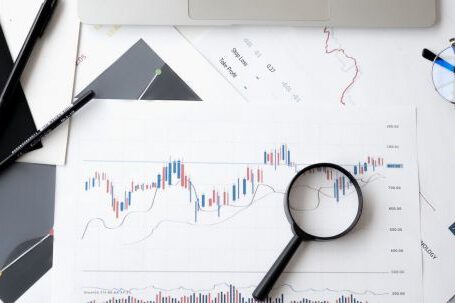Cryptocurrency trading has gained immense popularity in recent years, with millions of people around the world jumping on the bandwagon. However, to succeed in this volatile market, one needs to have the right tools at their disposal. In this comprehensive guide, we will explore the essential cryptocurrency trading tools that every trader should use.
1. Cryptocurrency Wallets
Before you start trading cryptocurrencies, you will need a secure wallet to store your digital assets. A cryptocurrency wallet is a software program that allows you to securely store, send, and receive digital currencies. There are various types of wallets available, including desktop wallets, mobile wallets, and hardware wallets. Each type offers different levels of security and convenience, so it’s important to choose the one that best suits your needs.
2. Cryptocurrency Exchanges
To buy, sell, and trade cryptocurrencies, you will need to use a cryptocurrency exchange. These platforms act as intermediaries, connecting buyers and sellers and facilitating the exchange of digital currencies. When choosing an exchange, consider factors such as security, fees, liquidity, and available trading pairs. Popular cryptocurrency exchanges include Binance, Coinbase, and Kraken.
3. Trading Bots
Trading bots are computer programs that automatically execute trades on your behalf. These bots are designed to analyze the market and make trading decisions based on predefined rules. They can help you take advantage of market opportunities 24/7, without the need for constant monitoring. However, it’s important to note that trading bots come with risks, and it’s crucial to thoroughly research and test any bot before using it.
4. Technical Analysis Tools
Technical analysis is a popular approach to trading that involves analyzing historical price and volume data to predict future price movements. To perform technical analysis effectively, traders use various tools, such as candlestick charts, trend lines, moving averages, and oscillators. These tools help identify patterns, trends, and potential entry and exit points in the market.
5. Fundamental Analysis Tools
Fundamental analysis focuses on evaluating the intrinsic value of a cryptocurrency by analyzing its underlying factors, such as the project team, partnerships, adoption rate, and market demand. To conduct fundamental analysis, traders use tools such as news aggregators, social media sentiment analysis, and blockchain explorers. These tools provide valuable insights into the fundamental factors that can impact a cryptocurrency’s price.
6. Portfolio Trackers
Keeping track of your cryptocurrency portfolio is essential for managing risk and making informed trading decisions. Portfolio trackers allow you to monitor the performance of your investments in real-time, track profit and loss, and set price alerts. Some popular portfolio trackers include CoinTracking, Blockfolio, and Delta. These tools provide a comprehensive overview of your holdings across multiple exchanges and wallets.
7. Risk Management Tools
Managing risk is crucial in cryptocurrency trading, as the market is highly volatile. Risk management tools, such as stop-loss orders and take-profit orders, help you limit potential losses and lock in profits. These tools allow you to set predefined price levels at which your trades will be automatically executed. By using risk management tools effectively, you can protect your capital and minimize the impact of market fluctuations.
In conclusion
Cryptocurrency trading can be a highly lucrative endeavor, but it requires the right tools and strategies. By utilizing the cryptocurrency trading tools mentioned in this guide, you can enhance your trading experience and increase your chances of success. Remember to thoroughly research and understand each tool before incorporating it into your trading strategy. Stay informed, stay disciplined, and always practice risk management to navigate the exciting world of cryptocurrency trading.





